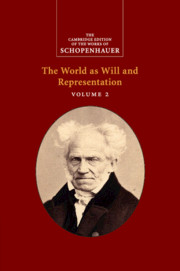Chapter 10 - On the Study of Syllogisms
Published online by Cambridge University Press: 30 June 2022
Summary
Although it is very difficult to put forward a novel, accurate, and foundational view on a subject that has been discussed by countless people for more than two thousand years, a subject, moreover, that cannot be enhanced through experience, this will not stop me from attempting just this, so that thinkers can examine my efforts.
A syllogism is that operation of our reason by means of which two judgments, when compared, give rise to a third, without any other or further input from cognition. The condition for this is that the two judgments must share one concept: otherwise they are strangers to each other with nothing in common. But when this condition is fulfilled they become father and mother of a child that inherits something from each of them. Moreover, this operation is not arbitrary but rational; dedicating itself to the consideration of these judgments, reason accomplishes this on its own, according to its own laws, to the extent that it is objective, not subjective, and thus obeys the most rigorous rules.
We can ask in passing whether someone drawing the conclusion really learns something new from the claim that has just arisen, something he did not already know? – Not absolutely: but in a certain respect, yes. What he learns was present in what he knew: thus he already knew it implicitly.c But he did not know that he knew it, which is comparable to having something but not knowing that you have it: which is as good as not having it. Specifically, he used to know it only implicitly, now he knows it explicitly: but this distinction can be so great that the conclusion looks like a new truth to him. For instance:
All diamonds are rocks;
All diamonds are flammable;
Therefore some rocks are flammable.
Consequently, the essence of the syllogism consists in our becoming clearly conscious of the fact that we have already implicitly thought the statement of the conclusion in the premises: it is accordingly a way of becoming more clearly conscious of our own cognition, experiencing more closely – or increasing our awareness of – what we know.
- Type
- Chapter
- Information
- Schopenhauer: The World as Will and Representation , pp. 115 - 125Publisher: Cambridge University PressPrint publication year: 2018

